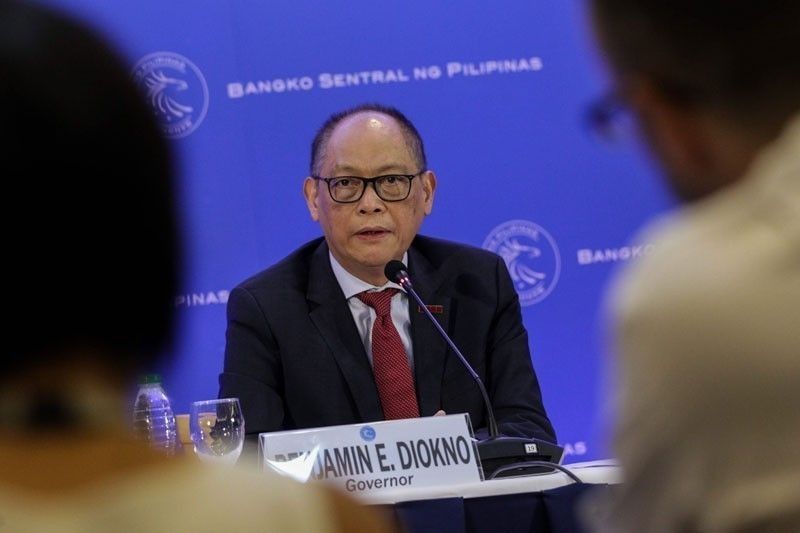BSP resumes rate cuts as Asia faces pressure from coronavirus

MANILA, Philippines (Update 2, 5:15 p.m.) — The Bangko Sentral ng Pilipinas on Thursday resumed its monetary policy easing, citing “manageable” inflation environment and the need to cushion the economy from external headwinds.
At its first meeting in 2020, the BSP’s Monetary Board cut its benchmark rate by 25 basis points to 3.75% — a move the central bank described as a “preemptive” action against risks to economic growth, including the novel coronavirus outbreak.
“[T]he Monetary board noted that the spread of the 2019 novel coronavirus could have an adverse impact on economic activity and market sentiment in the coming months,” BSP Governor Benjamin Diokno said.
“Given these considerations, the Monetary Board concluded that the manageable inflation environment allowed room for a preemptive reduction in the policy rate to support market confidence,” Diokno added.
Inflation in January stood at 2.9%, faster than December’s 2.5% but softer than 4.4% recorded in January 2019. A spike in food prices — which was due to crop damage from the twin storms in December and the recent Taal volcano eruption — pushed up inflation last month.
The potential impact of the African Swine Fever scare and tighter international supply of rice on domestic food prices could put upward pressure on inflation in the near-term, Diokno said, prompting the BSP to upwardly revise its inflation forecast for 2020 to 3% from 2.9% previously.
On the threats posed by the new coronavirus, BSP Deputy Governor Francisco Dakila said the impact of the SARS-like infection on the Philippine economy is likely “short-term” based on past outbreaks.
Separately, BSP director Dennis Lapid said: “The decision on further monetary accommodation will also depend on what we’ll see in terms of the data, particularly on the impact on domestic demand and let’s say tourism receipts and transport activity,”
The spread of the novel coronavirus in China and beyond presents "a new layer of uncertainty" for the European economy, European Central Bank chief Christine Lagarde said Wednesday. Her remarks placed the disease on the same level of menace to growth as "global risks" such as trade tensions and geopolitical flashpoints.
Lagarde's comments follow US Federal Reserve chairman Jerome Powell's statement last week that the American central bank was "closely monitoring" the virus outbreak, which has killed almost 500 people, infected more than 24,000 in mainland China and spread to more than 20 countries.
Since becoming central bank governor, Diokno has given the economy a shot in the arm with a cumulative 75-basis point rate cut in 2019 and a 400-basis point reduction in bank reserves.
With inflation no longer a problem of the BSP, Diokno said that he is looking at a 50-bp rate cut this year.
Here’s what an analyst said on the BSP’s decision:
“The main reason we think the BSP will cut rates again in 2020 is the poor outlook for the economy. The Philippines is likely to be more insulated from the economic fallout of the coronavirus than most other countries in the region. But the disruption to the tourism sector and industry will still add to the headwinds the economy faces from slowing consumption growth, and weak exports. Even before the virus emerged, we doubted that the 6.4% y/y growth seen in Q4 would be sustained. Growth now looks even more likely to fall short of the government’s 6.5-7.5% target this year.” - Alex Holmes, Asia economist at Capital Economics
— With a report from AFP
- Latest
- Trending
































